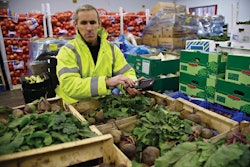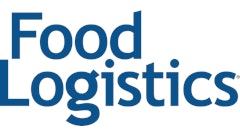A national food safety bill approved one year ago seems to be having little effect on local producers.
The Food Safety Modernization Act that President Barack Obama signed into law Jan. 3, 2011, was described as historic and the most sweeping overhaul of America's food safety system since 1938.
The bill provides the Food and Drug Administration with the authority to increase risk-based inspections, require recalls of tainted food and more effectively trace foodborne illness outbreaks to their source.
Bob McCutcheon, owner of McCutcheon Apple Products Inc., said the legislation is having no effect on his food production business.
"That's because we don't do anything that wouldn't be safe," McCutcheon said. "It doesn't really affect us. We're doing everything we need to do."
McCutcheon said the business passed an FDA inspection last fall.
"Most of the legislation seems to be concerned (more) with paperwork than anything, and we're all good," McCutcheon said.
McCutcheon said much of the legislation is probably unnecessary.
"There are enough rules and regulations on the books, and they have trouble enforcing the ones they already have," McCutcheon said, adding that a lot of the laws should be handled at the state level.
But McCutcheon supports any measure that ensures food coming from other countries is scrutinized for safety. "It's possible they're doing things over there we don't allow here," he said.
The new legislation also hasn't affected operations at Dairy Maid Dairy Inc. in Frederick, co-owner Jimmy Vona said.
"Milk is already under greater scrutiny than the rest of the food chain," Vona said. The new legislation has equipped federal inspectors with new laptops and other automated equipment that allows them to be more efficient, which he supports, Vona said.
McCutcheon's concern for safe imported foods was shared by several local agriculture experts.
The food safety legislation had been outdated for quite some time, and the focus on imported food is welcomed, said Colby Ferguson, Frederick County's business development specialist for agriculture.
"The rules for products grown in the US were different than the rules for products imported to the US," Ferguson said. "With the vast advancement in technology over the last decade, the ability to provide source verification is becoming much easier."
Most retailers mandate that local growers use best management practices and be Good Agriculture Practices-certified, Ferguson said.
"This landmark legislation looks to level the playing field for everyone and to increase food safety to the level the general public expects and deserves," Ferguson said.
Food safety has always been a concern for American farmers, Frederick County Farm Bureau President Ray Ediger said.
"Food safety in the US is the best in the world, but there's always room for improvement, as long as it benefits the consumer and the producer," Ediger said.
Measures should be taken to ensure that the same rules US farmers must conform to are applied to imported foods and producers and legislation shouldn't be so difficult that it drives farmers out of business and creates a reliance on foods produced in foreign countries, Ediger said.
Each year, foodborne illness strikes 48 million Americans, hospitalizing 100,000 and killing thousands, FDA Commissioner Margaret A. Hamburg said in a statement. The new law directs the FDA, working with a wide range of public and private partners, to build a new system of food safety oversight -- one focused on applying, more comprehensively than ever, the best available science and common sense to prevent the problems that can make people sick, Hamburg said.
Source: The Frederick News



















